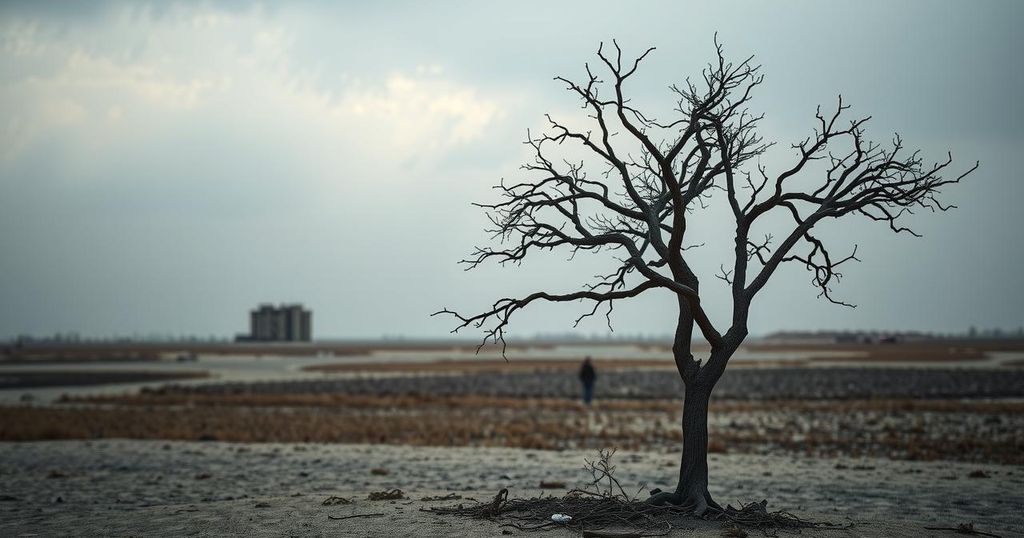UN Warns of Escalating Crisis in DR Congo Without International Aid

The UN human rights chief has warned that escalating violence in eastern DRC, driven by the Rwanda-backed M23 group, could worsen without immediate international intervention. Recent reports indicate nearly 3,000 deaths and numerous casualties as armed conflicts continue. The humanitarian situation is dire, with calls for urgent action from the global community to prevent further deterioration of conditions in the region.
On Friday, UN human rights chief Volker Türk addressed the alarming situation in eastern Democratic Republic of the Congo (DRC), attributing the escalating violence to the ongoing M23 offensive, allegedly backed by Rwanda. He warned that if international intervention does not occur, the crisis could deteriorate further, impacting not only the DRC but also neighboring regions. Nearly 3,000 fatalities and over 2,800 injuries have been reported since January due to the conflict, which has disrupted the lives of countless citizens and caused significant upheaval in the mineral-rich provinces of North Kivu and South Kivu.
The hostilities intensified in late January when M23 fighters, primarily of Tutsi ethnicity, regained control of strategic regions in North Kivu, including areas near Goma. The Human Rights Council is currently considering establishing a fact-finding mission to examine reports of egregious human rights violations occurring throughout eastern DRC. A draft resolution condemns Rwanda’s military assistance to the M23 and urges both Rwanda and the M23 to cease their operations and guarantee immediate humanitarian access.
Mr. Türk highlighted that two hospitals in Goma were bombed, resulting in casualties among patients, including women and children, during the ongoing violence. In a related incident, a prison break at Muzenze Prison in Goma led to horrific reports of violence against female inmates. He expressed particular horror over the prevalence of sexual violence in this conflict, noting the likelihood of its further escalation under current conditions, as UN personnel verify multiple sexual violence allegations in the affected areas.
Bintou Keita, the Special Representative of the Secretary-General in the DRC, corroborated Mr. Türk’s concerns regarding the catastrophic situation in Goma. She reported that instances of forced recruitment are occurring, and human rights advocates are at risk due to reprisals from the M23. She emphasized the multitude of health risks posed by the fighting, including the threat of cholera resurgence, interruption of children’s education, and increased occurrences of conflict-related sexual violence.
In response to the crisis, DRC Communications Minister Patrick Muyaya condemned the logistical, military, and financial aid provided to armed groups by countries like Rwanda, attributing the ongoing violence to these influences, which he argues have persisted for over three decades due to exploitation of DRC’s mineral resources. Conversely, Rwandan Ambassador James Ngango refuted this claim, alleging that a large-scale attack against Rwanda is imminent by groups supported by Kinshasa, with weapons stockpiled near the border.
Emphasizing the necessity of international collaboration to resolve the long-standing conflict, Mr. Türk remarked on the suffering of the eastern DRC population, noting that the minerals vital for products like mobile phones are sourced from the region. He underscored a collective responsibility in addressing the conditions that contribute to the crisis.
The Democratic Republic of the Congo has faced decades of instability stemming from civil conflict and armed group activity, particularly in its eastern provinces rich in minerals. The resurgence of the M23 armed group and its alleged backing by Rwanda has exacerbated hostilities and led to significant humanitarian crises. As violence escalates, international engagement is deemed crucial to prevent further deterioration of the situation.
The UN human rights chief’s warning reflects the urgent need for international intervention in the Democratic Republic of the Congo, specifically concerning the escalating violence attributed to the M23 group. With thousands killed and ongoing incidents of severe human rights abuses, it is imperative for the international community to take immediate actions to prevent a full-scale humanitarian disaster in the region.
Original Source: news.un.org








